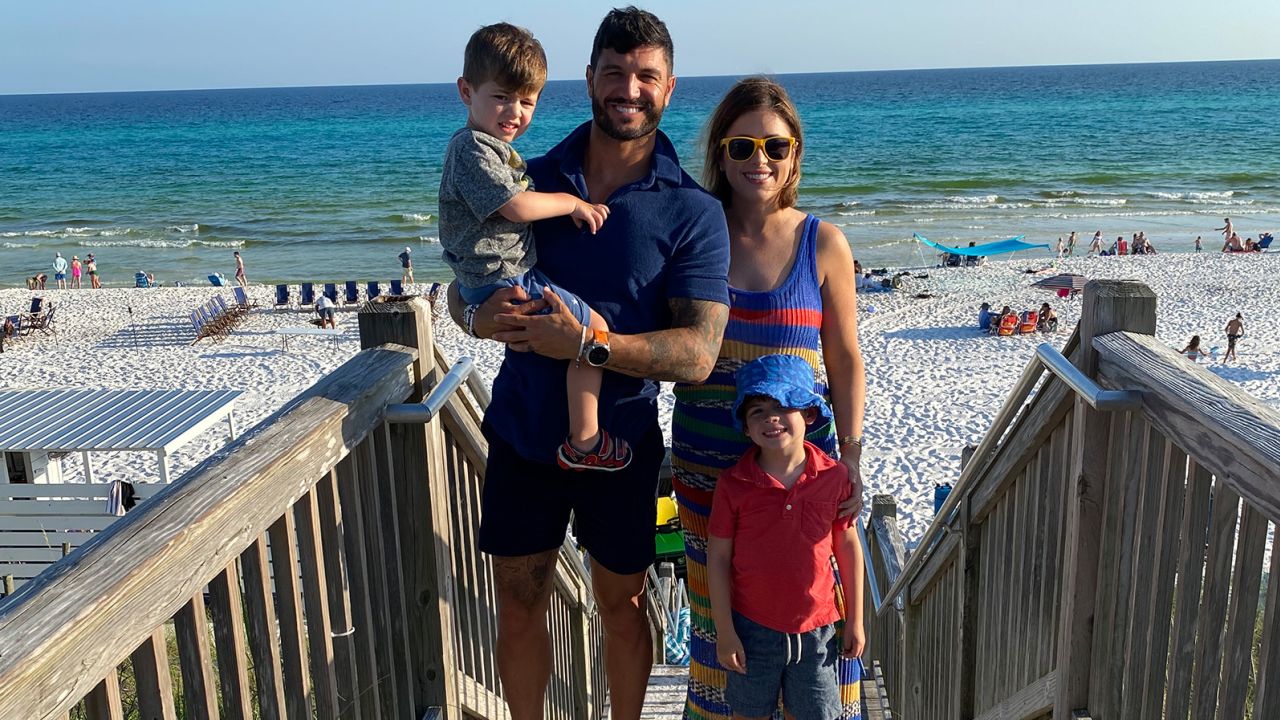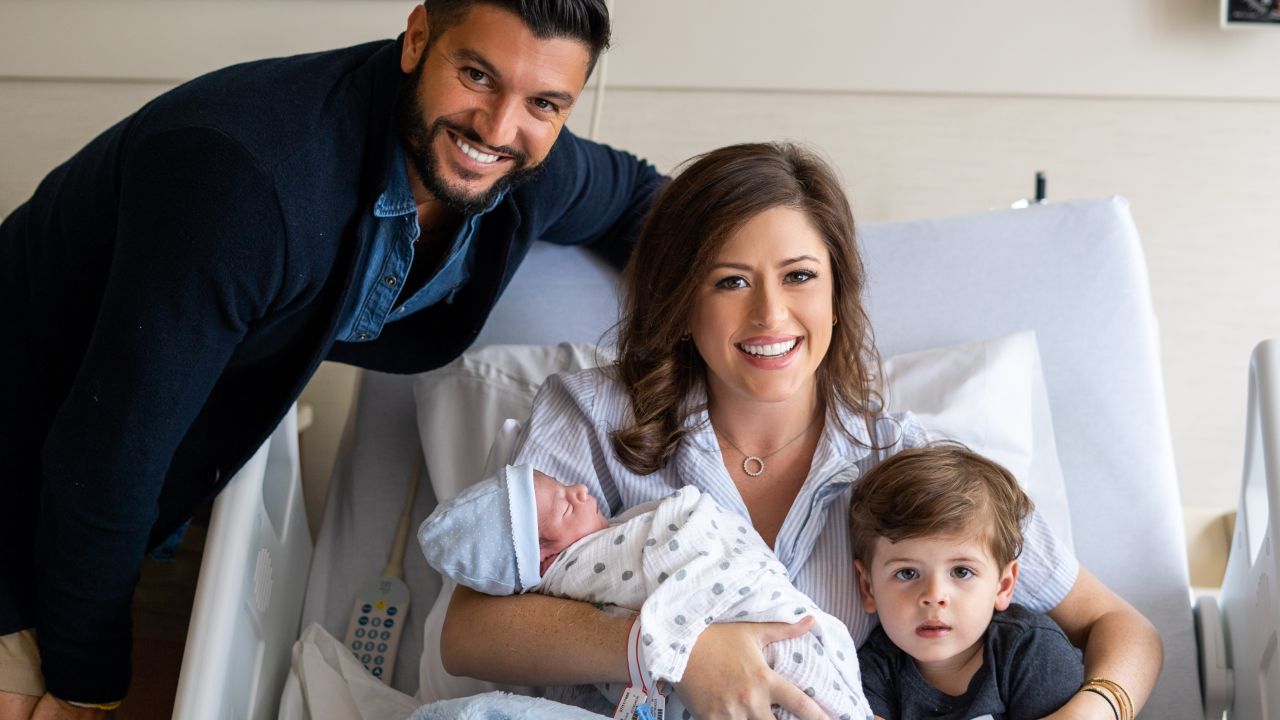
How to support your loved one during the infertility journey
- Published By Jane Njeri For The Statesman Digital
- 2 years ago
Editor’s Note: Chloe Melas is a reporter for CNN, covering all things entertainment for the network across platforms. After nearly two years of fertility treatments, she and husband Brian Mazza now have two sons. Melas was a recipient of Resolve’s 2020 Hope Award for Advocacy.
“Bobby and Sara are having twins!”
I remember my husband coming into the bathroom where I was taking a bath to tell me about his childhood best friend’s happy news.
We had been trying to get pregnant for several months at that point, and we were going through rounds of intrauterine insemination, better known as IUI.
I wanted to genuinely give a nice response, but I just sank down further in the tub, my eyes welled up with tears. I felt nauseous and angry. I let out a mumble: “Great.” But what I wanted to do was scream, “Why them and not us?!”
I carried around such bitterness and resentment throughout our yearslong struggle to start a family.

As it turns out, we were in the same boat as millions of people all over the world.
Infertility affects about 1 in 6 people, according to a recent report from the World Health Organization previously covered by CNN. Rates of infertility — meaning the inability to conceive after 12 months of having sex without protection — are similar across all countries and regions, according to the WHO report.
During our fertility treatments to get pregnant with our first child, Leo, I kept our fertility treatments a secret from my family and friends. I didn’t want to have to deal with answering any questions or let anyone down if the procedures didn’t result in a baby.
But it was difficult to mask my overwhelming despair. At one point during my first round of in vitro fertilization, or IVF, I finally saw a psychologist. I’m not sure if it had to do with the copious amounts of fertility drugs, the daily injections or the months of failed treatments — but it was a perfect emotional storm. I needed validation that what I was feeling was, in fact, normal.
I wasn’t alone in my grief
As it turns out, lots of people feel this way. Receiving a psychiatric diagnosis, most commonly anxiety or depression, is something up to 40% of women affected by infertility face, according to the American Psychiatric Association.
“During the journey, there are often long wait times with appointments or providers. Waiting to get test results, waiting to hear something was effective, waiting for next steps. All that waiting can really put us in a non-ideal mental health space,” psychologist Dr. Heather Tahler told CNN. She is the mental health services lead at women and family telemedicine startup Maven Clinic in New York City.

Why aren't we talking about male factor infertility?
“I think another big stressor people feel is the societal pressure for family building to look a certain way. We don’t talk enough about all the different paths that people go through to build their family.”
This kind of distress can be severe. Dr. Elizabeth A. Grill, associate professor of psychology at the Ronald O. Perelman and Claudia Cohen Center for Reproductive Medicine at Weill Medical College of Cornell University, equates the stress of an infertility diagnosis to that of a terminal illness.
“The research shows that the distress levels of those going through infertility are equal to patients diagnosed with heart disease, cancer and HIV,” Grill said.
Part of my sadness was how isolating it all felt. When my husband and I initially began tracking my ovulation and good old-fashioned sex wasn’t working, I would talk to my girlfriends and certain family members, who would brush my worries aside and tell me the key to getting pregnant was to lower my stress levels. “Just have a glass of wine before sex,” one friend said. “Take a trip,” a relative suggested. They were trying to be helpful, but it was hurtful.
To find out what could be helpful for others, I talked to several people for their advice on what to do and not do when supporting a loved one going through infertility.
Stop offering advice and just listen
Talk less and listen more, advised Grace Bastidas, the editor-in-chief of Parents. She regularly covers the topic of infertility and recently published a piece about how to help people going through infertility.
“If a friend or a relative tells you they’re having a tough time conceiving, try not to minimize it by saying, ‘Just try to relax.’ That’s really not helpful,” Bastidas said.
“It really doesn’t validate how they are feeling in the moment,” she said. “If you don’t know what to say, sometimes just listening and being that ear or that shoulder and letting them know they can count on you is what you can do.”
Invite your loved ones but don’t get offended if they decline
It sounds awful but for more than a year, I found it very difficult to be happy for anyone becoming pregnant. I’d get invites to baby showers and dread having to go. I’d see pregnant women in the checkout aisle at the grocery store and feel pangs of sadness.
It felt like every woman on the planet was pregnant, except me.
Elizabeth Angell, editor-in-chief of Romper, a website for millennial moms, advises people not to hide your happy news but have grace and understanding for the ones around you who are struggling.

Their IVF journeys did not end with children. Here's what these women want you to know
“Events like baby showers and christenings can be minefields for anyone going through infertility. I would take your cues from them,” said Angell, who has a section at Romper dedicated to trying to conceive.
“You should invite your good friends to any such celebration, but don’t be offended if they choose not to come. It doesn’t mean they aren’t happy for you. Give them the space to grieve and reassure them that you’re there for them when they’re ready to talk about it.”
Do specific things to support your loved ones
Stepping up for your loved one, whether that means taking them to doctor’s appointments or sending a small gift can go a long way, Grill told me.
“If the person you are trying to support is open to ideas, try to think of what you would do for a friend diagnosed with any other illness,” Grill said. “Call or text to ask how they are doing, bring them dinner, offer to take them to appointments.

Lengthening a woman's fertility may extend her life as well, research finds
“Let them know you love them and are there for them. Learn to listen, support and show trust more than offering advice. Most importantly, validate their experience and learn to sit with them in the discomfort of their pain.”
Angell agreed. “Infertility treatments are often physically taxing. If that’s something your friend is going through, send food or a nice bathrobe or pajamas — something they can use when they’re resting and recuperating.”
Don’t ask if they are trying to get pregnant
Although well intended, “seemingly innocuous questions of curiosity … can trigger feelings of devastation and anxiety for those trying to conceive,” Grill told CNN.
Nora DeBora, who hosts The Ultimate Pregnancy Prep Podcast, has been open about how her desire to start a family hasn’t happened yet.
“As a single woman in my late 30s who deeply desires a family, it can be off-putting and uncomfortable when people ask ‘when are you going to have a baby?’ There is a lot of pressure that women put on themselves already while feeling like their biological clock is ticking with each passing year.”
Your loved ones may want to share — and then they don’t
Some days you might be handing your loved one a tissue, and others they may seem closed off.
“Being present for someone on their journey means meeting them where they are at,” Tahler said. “Some days it could be talking, some days it could be a hug. There are a variety of emotional responses day-to-day. It is best to remind yourself of this, so you don’t take it personally.”
It has been liberating but sometimes incredibly vulnerable ever since my husband and I first began sharing our story in 2018.

Recently, I went on the Pregnantish podcast with host Andrea Syrtash, who told me that the stigma around infertility is still very prevalent. That’s why she is compelled to feature stories of people who go the distance to create their families and how their relationships are impacted.
“‘First comes love, then comes marriage, then comes a baby carriage’ is an outdated narrative for millions of people,” she told me.
“Modern family building and infertility impact every relationship we have. With our partners, friends, family, workplace and most importantly, the relationship we have with our bodies and ourselves.”
Share on
SHARE YOUR COMMENT
MORE STORIES FOR YOU
Trending Stories
DJ Mo’s former illicit lo...
- Published By Jane
- January 15, 2024
Mapenzi! Zari and Tanasha...
- Published By Jane
- October 24, 2023
Zuchu Speaks on Diamond P...
- Published By Jane
- October 12, 2023
Hio Ni Upumbavu Wasituche...
- Published By Jane
- November 8, 2023
RECOMMENDED FOR YOU
Your Lungs Hold Secrets A...
- Published By The
- September 11, 2025
Better Sleep?: See The Li...
- Published By The
- September 11, 2025
What to Know About iPhone...
- Published By The
- September 11, 2025
From Teacher to Mwalimu N...
- Published By The
- September 11, 2025
Latest Stories
"Hakuwa Type Yangu": Geor...
- Published By The
- September 30, 2025
How to Have a Baby Boy: K...
- Published By The
- September 30, 2025
"God is Good": Zari Hassa...
- Published By The
- September 30, 2025
Madagascar President Diss...
- Published By The
- September 30, 2025



